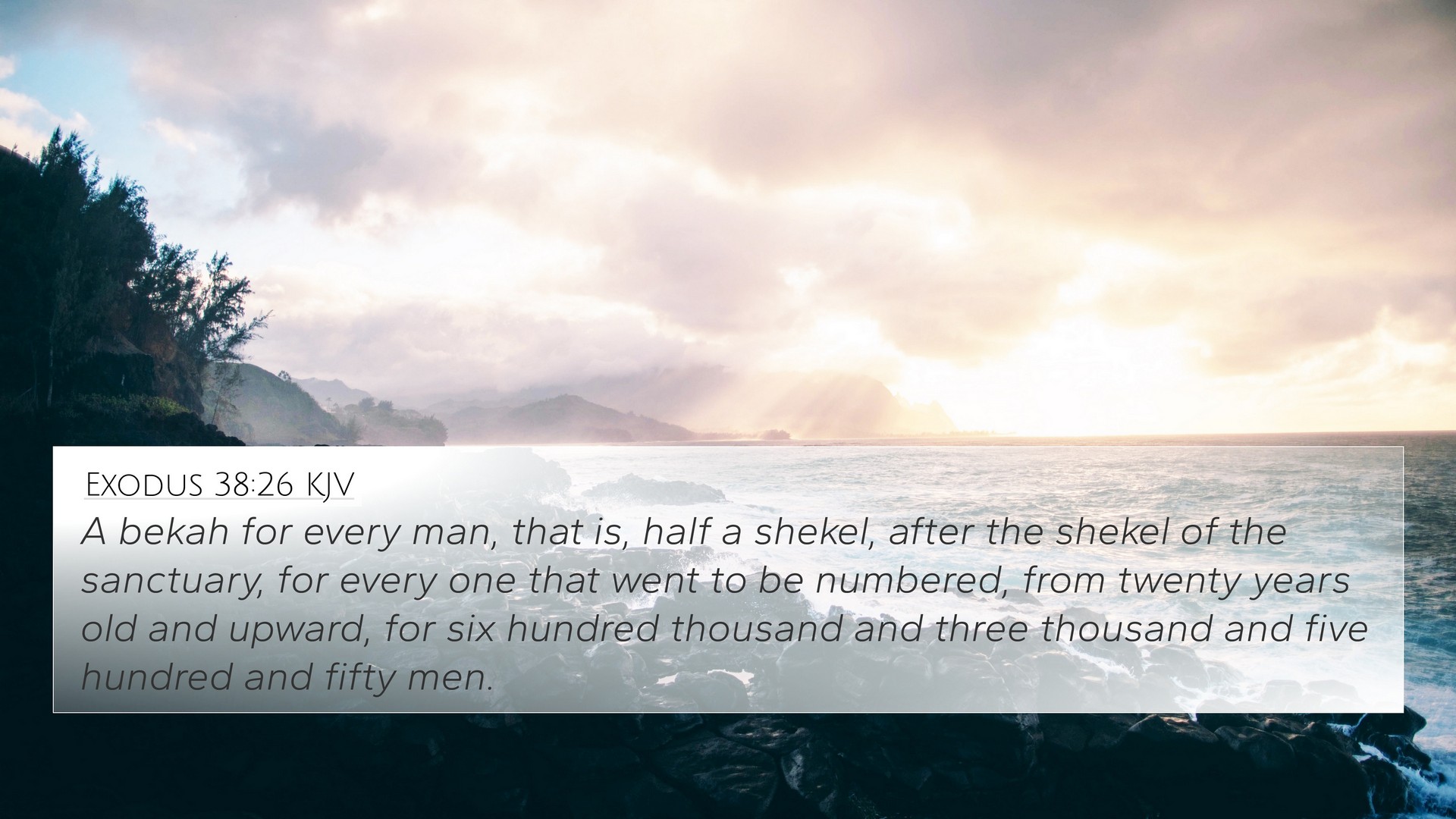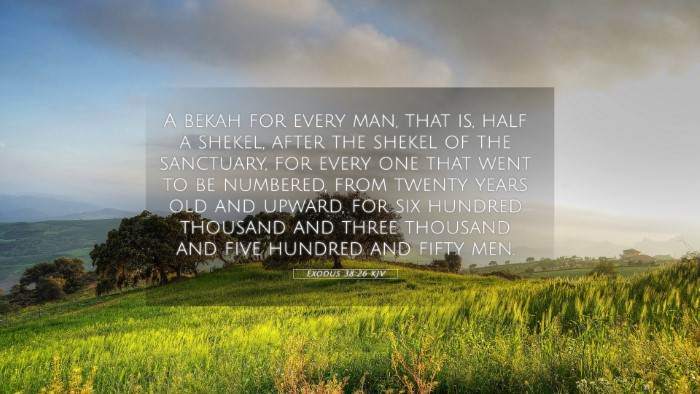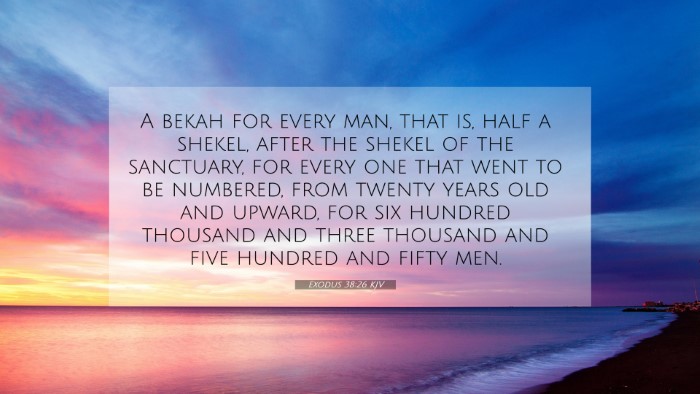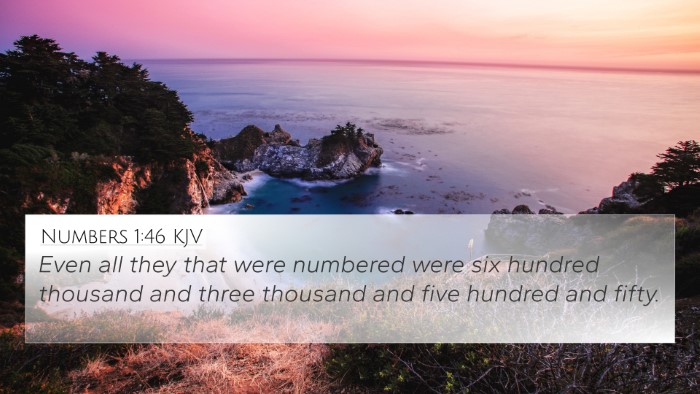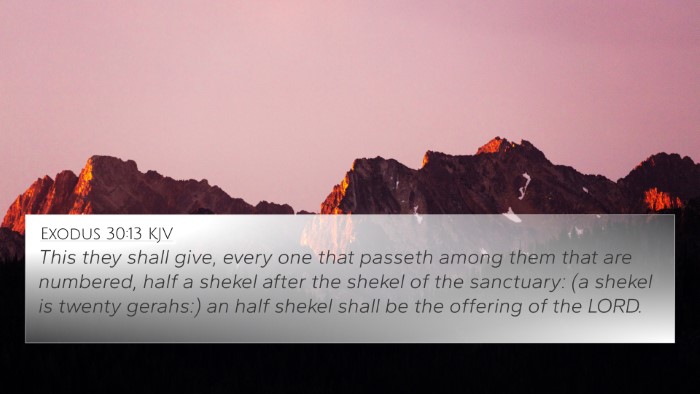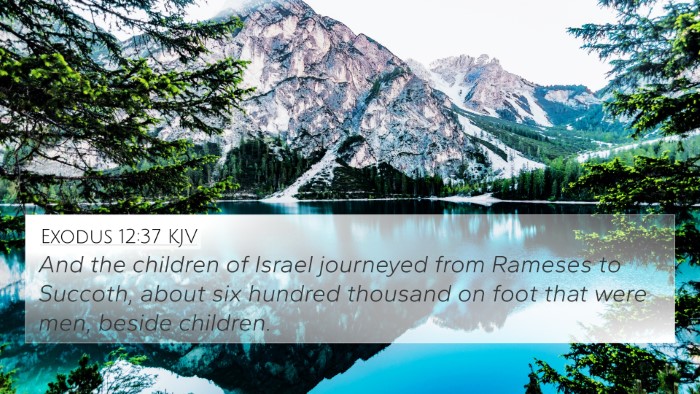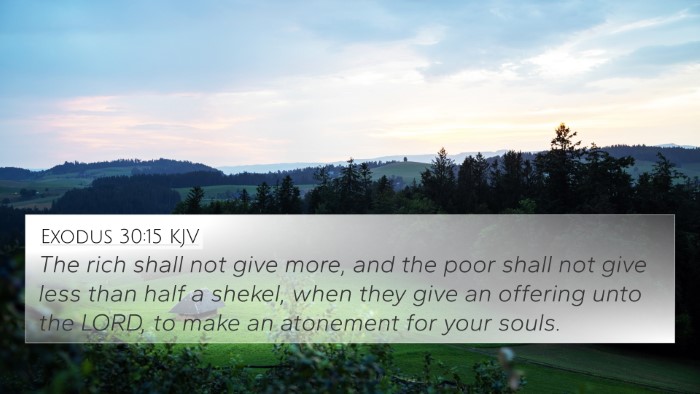Old Testament
Genesis Exodus Leviticus Numbers Deuteronomy Joshua Judges Ruth 1 Samuel 2 Samuel 1 Kings 2 Kings 1 Chronicles 2 Chronicles Ezra Nehemiah Esther Job Psalms Proverbs Ecclesiastes Song of Solomon Isaiah Jeremiah Lamentations Ezekiel Daniel Hosea Joel Amos Obadiah Jonah Micah Nahum Habakkuk Zephaniah Haggai Zechariah MalachiChapter
Exodus 1 Exodus 2 Exodus 3 Exodus 4 Exodus 5 Exodus 6 Exodus 7 Exodus 8 Exodus 9 Exodus 10 Exodus 11 Exodus 12 Exodus 13 Exodus 14 Exodus 15 Exodus 16 Exodus 17 Exodus 18 Exodus 19 Exodus 20 Exodus 21 Exodus 22 Exodus 23 Exodus 24 Exodus 25 Exodus 26 Exodus 27 Exodus 28 Exodus 29 Exodus 30 Exodus 31 Exodus 32 Exodus 33 Exodus 34 Exodus 35 Exodus 36 Exodus 37 Exodus 38 Exodus 39 Exodus 40Verse
Exodus 38:1 Exodus 38:2 Exodus 38:3 Exodus 38:4 Exodus 38:5 Exodus 38:6 Exodus 38:7 Exodus 38:8 Exodus 38:9 Exodus 38:10 Exodus 38:11 Exodus 38:12 Exodus 38:13 Exodus 38:14 Exodus 38:15 Exodus 38:16 Exodus 38:17 Exodus 38:18 Exodus 38:19 Exodus 38:20 Exodus 38:21 Exodus 38:22 Exodus 38:23 Exodus 38:24 Exodus 38:25 Exodus 38:26 Exodus 38:27 Exodus 38:28 Exodus 38:29 Exodus 38:30 Exodus 38:31